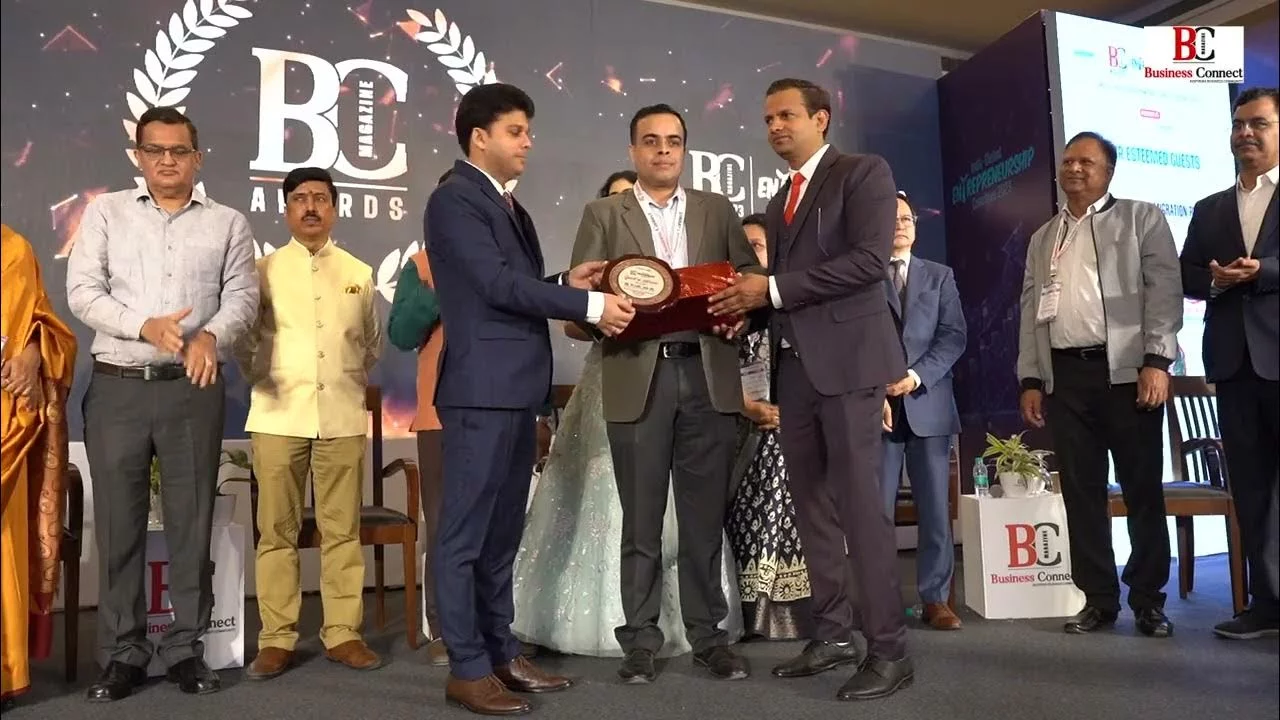
26 October 2023
Indo-Global Entrepreneurship Conclave - 2023
Venue: The Lalit Hotel, New Delhi
India’s year-long presidency of the Group of Twenty (G20) offered a significant opportunity to rejuvenate and boost its economy, which had been severely impacted by the COVID-19 pandemic and the ensuing global recession. India’s G20 Sherpa, Amitabh Kant, rightly described G20 as an avenue to provide a healing touch to the world during times of challenges. It was a momentous period that transformed India’s role on the global stage, shifting the world’s focus from Europe and Asia to the Global South.
India’s G20 presidency was a unique and opportune moment for businesses to showcase their potential and actively contribute to global economic growth and stability. Amitabh Kant, India’s G20 Sherpa, praised the New Delhi G20 declaration for its inclusivity and consensus on developmental issues, even amidst conflicts like the Russia-Ukraine crisis. He highlighted the green development pact, which presented an opportunity for India’s automotive sector to become a global leader in electric and sustainable mobility.
India’s Presidency of G20 also shifted the world’s focus from Europe, and Asia to the Global South. Amitabh Kant consistently emphasized the importance of the Global South at the G20 meetings, recognizing that the challenges faced by the 70 countries suffering from a debt crisis have a spiraling impact on other parts of the world. Prime Minister Narendra Modi echoed this sentiment, stating that India should be the voice of the Global South and care for the citizens of the world.
G20 is not just about the world’s 20 largest economies; it’s about transforming the world. The New Delhi Declaration adopted by the G20 leaders focused on strong and sustainable growth, accelerating progress on sustainable development goals, a green development pact, and reinvigorating multilateralism.
Amitabh Kant, asserted that today’s era must be marked as the golden age of human-centric globalization, and India’s G20 Presidency, under the leadership of Prime Minister Narendra Modi, tirelessly worked towards this goal. The G20 Declaration was historical and path-breaking, demonstrating Prime Minister Modi’s leadership in today’s world.
The G20, a premier international forum that brings together leaders from the world’s largest economies to discuss and coordinate on issues related to global economic growth and stability, provided a vital platform for India’s economic recovery. Through its G20 Presidency, India leveraged international cooperation, attracted investments, implemented economic reforms, and advocated for policies that aligned with its recovery objectives. This effort allowed India to navigate the challenges of the pandemic and the global recession, setting the stage for a more robust and resilient economic future.
The G20 Declaration reflected India’s foreign policy priorities and the nature of its relationships with key actors. It also had implications for bilateral ties, particularly with the US, Russia, and China, and reinforced India’s quest to bethe voice of the Global South. At a time when the international system faced bleak challenges, India’s G20 Presidency contributed to efforts to revive reformed multilateralism.
The G20, originally formed in response to the Southeast Asian financial crisis in the late 1990s, has evolved into an intergovernmental forum that includes the world’s major developed and developing economies. Its upgrading in 2007 to include heads of state and governments enabled coordinated efforts during the 2008 global financial crisis, which helped restore economic growth. Today, it comprises 21 countries across continents and the European Union, representing around 85% of the world’s GDP.
India’s achievements during its G20 Presidency hold significant potential for global benefits, particularly in the domains of digital public infrastructure and technological transformation. India has made remarkable progress in digital identity creation, opening a large number of bank accounts, empowering citizens with data, and facilitating fast payments. These achievements are not only beneficial for India but also serve as valuable lessons for other nations seeking digital advancement.
The impact of the G20 on Indian entrepreneurs and businesses cannot be underestimated. India, in its pursuit of a $5 trillion economy, found the G20 to be an exceptional opportunity for businesses. Here’s how India’s G20 Presidency can aid its economic recovery by unlocking global impact and charting new paths to future opportunities:
Global Partnerships: India’s G20 presidency offered a platform to forge strategic partnerships and alliances. Businesses could leverage these relationships to access global markets, expand their customer base, and collaborate on research and development initiatives. Building international networks and partnerships was crucial for scaling businesses and exploring new growth avenues.
Global Economic Stability: G20 addresses financial stability and regulatory reforms. Stable financial markets and well-regulated institutions are essential for businesses to access capital and manage financial risks. This stability is crucial for Indian businesses that engage in international trade and investments, as it reduces uncertainty and risks.
Trade Opportunities: G20 provides a platform for discussions on international trade policies and agreements. Positive developments in trade discussions can open up new markets and trade opportunities for Indian entrepreneurs and businesses, boosting exports and economic growth.
Investment Attraction: A stable and prosperous global economic environment promoted by G20 can make India an attractive destination for foreign direct investment (FDI). Indian entrepreneurs and businesses can benefit from increased foreign investments, leading to economic expansion and job creation.
Policy Coordination: G20 discussions often involve coordination on macroeconomic policies, financial regulations, and taxation. Indian government officials participate in G20 meetings, representing the country’s interests. Indian businesses and industry associations can engage with these representatives to advocate for policies that benefit their sectors. Coordinated policies can create a more conducive environment for business operations by ensuring consistency and reducing regulatory hurdles.
Innovation and Technology Transfer: G20 discussions may also cover topics related to innovation, technology transfer, and digital economy regulations. Indian entrepreneurs can leverage these discussions to gain access to new technologies and markets, fostering innovation and growth.
Sustainability Initiatives: G20 discussions increasingly focus on sustainable development and climate change. Indian businesses involved in green technologies, renewable energy, and sustainable practices can benefit from global initiatives and partnerships in these areas.
Global Supply Chain Resilience: The COVID-19 pandemic highlighted the importance of supply chain resilience. G20 discussions on supply chain resilience and security can provide insights and opportunities for Indian businesses to enhance their supply chain strategies.
Networking Opportunities: G20 meetings gather leaders and officials from around the world. Indian entrepreneurs and business leaders can use these forums for networking, building international partnerships, and exploring collaborations.
Showcasing Potential: India’s G20 presidency allowed Indian businesses to showcase their immense potential on a global stage. It provided a platform to exhibit the country’s vibrant entrepreneurial ecosystem, innovative technologies, and diverse industries. This visibility attracted the attention of international investors and partners, opening doors for collaboration and investment.
Supply Chain Enhancement: As India focused on improving its supply chain infrastructure, especially in the wake of the pandemic, businesses had the chance to play a pivotal role. Enhanced supply chains benefit trade by making it more efficient and reliable, particularly for small businesses. Indian companies could actively engage in supply chain optimization, logistics improvements, and technology adoption to facilitate seamless global trade.
Advocating for Trade Facilitation: India’s emphasis on improving trade, especially for small businesses, created a conducive environment for businesses to advocate for policies that support international trade. Entrepreneurs could actively participate in discussions regarding trade facilitation, tariff reduction, and reducing non-tariff barriers, making it easier for Indian products and services to access global markets.
India’s G20 presidency was a unique window of opportunity for businesses to demonstrate their capabilities, contribute to global economic growth and stability, and align with the country’s ambitious goal of becoming a $5 trillion economy. By actively engaging in supply chain improvements, leading the digital transformation charge, and fostering global partnerships, Indian businesses played a vital role in shaping the economic landscape during this critical period.
In conclusion, the New Delhi Declaration adopted by the G20 leaders has the potential to benefit the Indian economy, businesses, and entrepreneurs by providing a platform for global cooperation, stability, and policy coordination. Through India’s active participation and leadership in the G20, the country has positioned itself as a key player in shaping the future of global economics and trade, unlocking opportunities that can fuel its journey toward a $5 trillion economy

